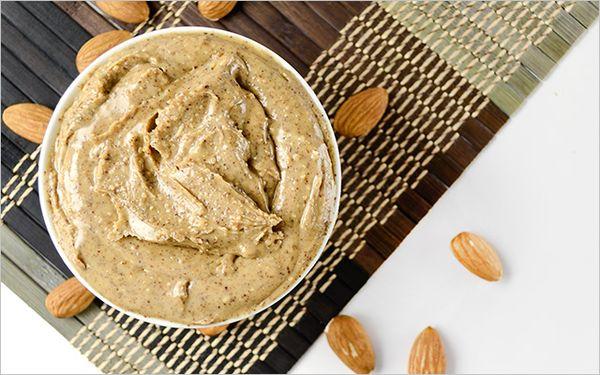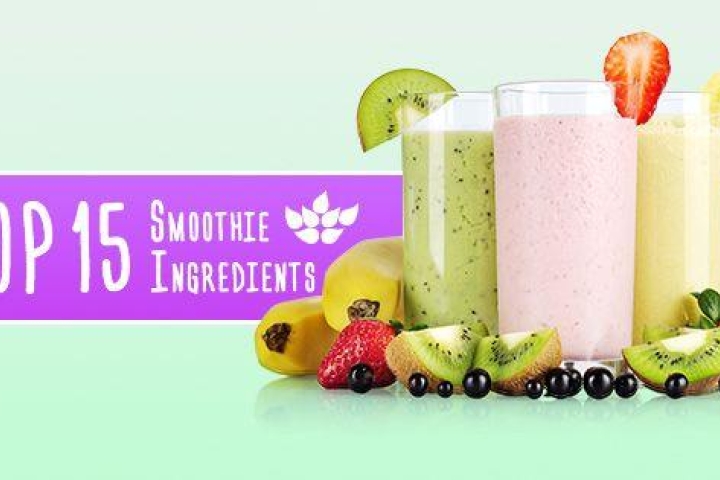10 Peanut Butter Alternatives Worth Trying
Peanut butter is a staple in many households, but it’s not suitable for everyone.
Some individuals are allergic to peanuts, while others avoid them for lifestyle reasons. Although commonly referred to as a nut, peanuts are actually legumes, which are excluded from Paleo and similar diets.
Whether you’re allergic to peanuts, adhere to the Paleo diet, or have other reasons for avoiding peanut butter, there are numerous alternatives available, including various nut and seed butters.
Note: This guide covers only ten of the most popular nut and seed butters. However, there are many more alternatives to peanut butter available for you to explore and enjoy!
Nut Butters: Peanut Butter Substitutes
Many of the nut butters listed below serve as easy and tasty substitutes for peanut butter. Be sure to read each description, as every nut butter offers a unique flavor and specific uses.
Almond Butter
A close competitor to peanut butter, almond butter has gained widespread popularity as an alternative nut butter.
It offers a creamy consistency similar to peanut butter but is generally considered healthier.
Unlike traditional peanut butters that may contain added sugars and hydrogenated oils, most almond butters are made purely from roasted almonds. They also provide around 3 grams more monounsaturated fats per serving than peanut butter, which is beneficial for heart health.
Almond butter is a delightful addition to baked goods and makes a great alternative in sandwiches for those looking to replace the classic PB & J.
Recipe Inspiration:
| Baked Sweet Potato with Almond Butter Drizzle |
Try It:
| Woodstock Farms Lightly Toasted Smooth Almond Butter | |
| Justin’s Nut Butter Classic Almond Butter | |
| Barney Butter Smooth Almond Butter |
Brazil Nut Butter
Brazil nuts are primarily sourced from the Amazon and are highly favored there.
While they are a fatty nut, 75% of their fat content consists of monounsaturated and polyunsaturated fats, which are healthy fats. Brazil nut butter is also a good source of magnesium, copper, vitamins A and E, potassium, selenium, and riboflavin.
Thanks to these nutrients, Brazil nut butter aids in supporting healthy digestion and provides 2 grams of fiber per serving.
Try adding Brazil nut butter to toast, crepes, and ice cream, or use it to make a flavorful nut milk when blended with water.
Recipe Inspiration:
| Raw Chocolate Brazil Nut Butter Cups |
Try It:
| Dastony Brazil Nut Butter |
Cashew Butter
Cashew butter is quickly gaining popularity, much like almond butter once did with peanut butter.
This appealing nut butter is becoming a favorite due to its lower fat content compared to other nut butters and its rich nutritional profile, which includes protein, phosphorus, magnesium, folate, and iron—nutrients that support heart and immune health.
Introduced to various cuisines by the Portuguese in the 16th century, cashew butter today is commonly used in sauces, curry dishes, and baked goods. Its sweet and rich flavor also complements vegetables like celery.
Recipe Inspiration:
| Pumpkin Berry Cashew Butter Smoothie |
Try It:
| Once Again Organic Cashew Butter | |
| Artisana Raw Cashew Nut Butter | |
| Dastony Cashew Butter |
Coconut Butter
Coconut butter is sure to appeal to those who already enjoy coconut oil.
Unlike coconut oil, which consists solely of fat, coconut butter includes pureed coconut meat, offering not only fat but also 2 grams of fiber per serving along with amino acids, calcium, potassium, magnesium, and iron.
Like coconut oil, coconut butter can help increase your metabolism. Although it may not taste like other nut and seed butters, it is equally delightful.
Coconut butter can be used as a spread, added to berries for a delectable dessert, or incorporated into baked goods recipes. It also enhances the flavor of dishes like drizzled squash.
The FDA categorizes coconut as a tree nut, which is why we include it in this list of peanut butter alternatives. Many individuals with nut allergies can safely consume coconut.
Recipe Inspiration:
| Freezer Coconut Butter Cups |
Try It:
| BubbForest Organic Coconut Butter | |
| Artisana Raw Organic Coconut Butter | |
| Dastony Coconut Butter |
Hazelnut Butter
Hazelnut butter is rich in nutrients, including magnesium, folate, zinc, iron, and potassium, and it contains more than twice the vitamin E found in peanut butter.
It is celebrated for enhancing energy, promoting skin health, and providing a good source of fiber, protein, and healthy fats.
Additionally, hazelnut butter is naturally free of sodium. With all these health benefits, it’s hard not to adore it.
Hazelnut butter is commonly used in dessert recipes and can enhance the flavor and nutritional value of your morning toast or oatmeal.
Recipe Inspiration:
| Grain Free Hazelnut Butter and Chocolate Chunk Cookies |
Try It:
| Dastony Hazelnut Butter | |
| Justin’s Nut Butter Chocolate Hazelnut Butter |
Pecan Butter
Pecans are noted for their high fat content, which predominantly consists of healthy monounsaturated and polyunsaturated fats.
They also provide more than 19 vitamins and minerals, including vitamins A and E, calcium, magnesium, and potassium.
Thanks to its nutrient-rich profile, pecan butter offers numerous health benefits, such as supporting digestive and immune health, promoting skin health, aiding in weight loss, and providing anti-aging effects. Additionally, pecan butter is a good source of fiber.
Pecan butter serves as an excellent spread for toast and can be used to make fudge. It also adds a unique flavor to baking and dressing recipes.
Recipe Inspiration:
| Pecan Butter Chocolate Chip Cookies |
Try It:
| Artisana Organic Raw Pecan Butter |
Walnut Butter
Walnut butter has a thick consistency because it grinds down into a crumbly, stiff paste. Although it may be more challenging to spread on toast than other butters, its taste is just as delightful.
Although slightly lower in protein and higher in fat than other nut butters, walnut butter is an excellent vegetarian source of omega-3 fatty acids. Due to its high polyunsaturated fat content, it is best stored in the refrigerator.
Walnut butter serves as an effective peanut butter substitute and can be used in recipes that require binding and texture, such as veggie burgers. For enhanced flavor, consider adding a touch of cinnamon.
Recipe Inspiration:
| Fresh Pear Mille Feuille with Walnut Butter |
Try It:
| Artisana Organic Raw Walnut Butter | |
| Artisana Raw Organic Walnut Butter with Cashews |
Seed Butters: A Nut Free Alternative to Peanut Butter
If you have nut allergies, the options listed above may not be suitable substitutes for peanut butter.
Instead, consider the following delicious seed butters.
Pumpkin Seed Butter
Pumpkin isn’t just for lattes and carving; it’s also a source for tasty seed butter!
Pumpkin seed butter is rich in protein, fiber, and nutrients such as magnesium, phosphorus, zinc, and omega-3 fatty acids, all of which benefit heart health, immune health, sleep, and overall wellness.
This seed butter is also a suitable alternative for those with nut allergies.
The robust flavor of pumpkin seed butter pairs well with vegetables like carrots and celery and can be added to soups, stews, and recipes that traditionally call for peanut butter.
Recipe Inspiration:
| Pumpkin Seed Butter Energy Bars |
Try It:
| Jarrow Formulas Pumpkin Seed Butter | |
| Dastony Sprouted Pumpkin Seed Butter |
Sesame Seed Butter
Sesame seed butter, also known as tahini, has been a staple in Middle Eastern cuisine for centuries.
It provides a substantial 6 grams of protein and 4 grams of fiber per serving, along with thiamin, phosphorus, magnesium, potassium, vitamin E, B vitamins, and omega-3 and omega-6 fatty acids.
These nutrients help support brain, heart, and immune health.
Additionally, tahini is sugar-free and an excellent choice for raw food diets.
Tahini is highly versatile and can be used in both sweet and savory dishes, including sauces, dressings, and spreads. It’s also an essential ingredient in many hummus recipes.
Recipe Inspiration:
| Falafel with Tahini Garlic Sauce |
Try It:
| Dastony Sesame Seed Butter | |
| Once Again Natural Tahini | |
| Woodstock Farms Organic Sesame Tahini |
Sunflower Seed Butter
Sunflower seed butter was introduced in the 1980s as an alternative to peanut butter when sunflower seed sales were declining.
Although it has a different consistency and flavor, it remains a popular choice among sunflower seed enthusiasts. It offers a good source of fiber, magnesium, niacin, and vitamin E. The flavor is earthier compared to other nut and seed butters.
Sunflower seed butter is versatile and can be used in salad dressings, sauces, and baked goods, or as a substitute for tahini or peanut butter. It also spreads smoothly on toast.
Recipe Inspiration:





Leave a comment